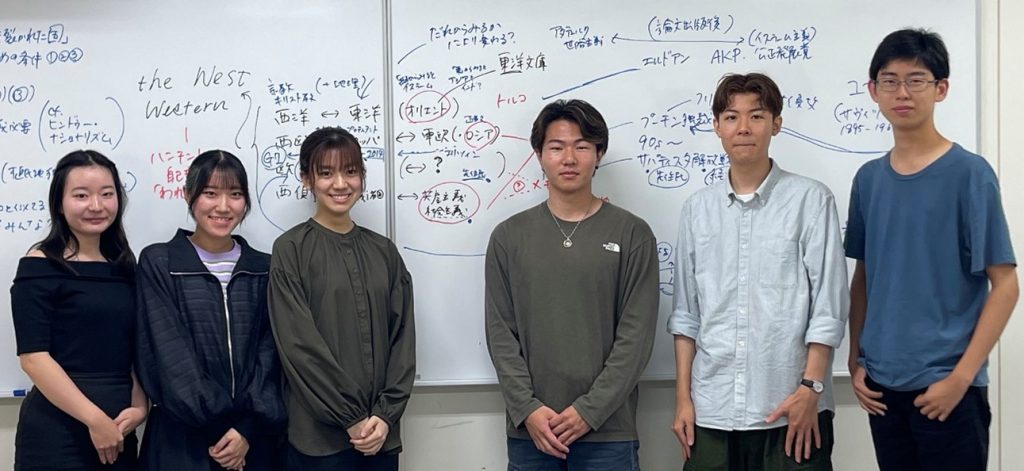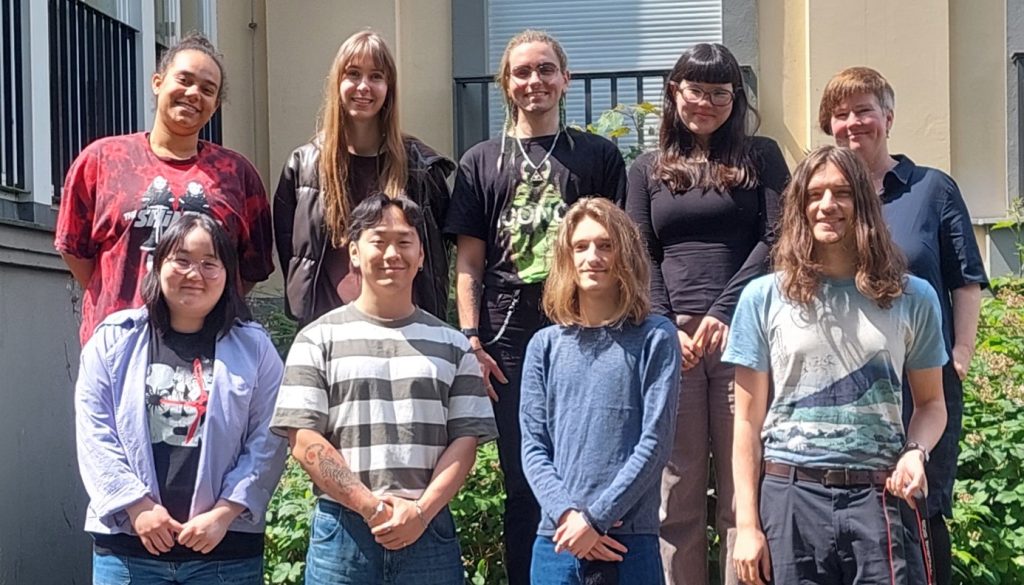by Tadahiro Nakamura and Hinata Takemoto
In May 2024, students from Seikei University and FU Berlin met for online interviews about food culture and everyday eating practices in Japan. While the experiences of the Berlin students were summarized in the previous blog post, two students from Seikei University report on their experiences in this blog post.
Tadahiro wrote:
First of all, I would like to thank my interviewers, Sarah and Michelle, Prof. Reiher, and Prof. Kawamura for giving me such a wonderful opportunity. I was delighted to talk with German students online. It was particularly interesting to learn about the difference between westernized Japanese food and Japanese food which we enjoy in our everyday life.The interview was conducted in Japanese, so that I could relax and answer the questions. When I was asked about how we appreciate foreign cuisines in our daily life, I realized that Japanese people like to have international cuisines such as Italian, Chinese, Korean, Spanish, Thai, and so on, both outside and at home. Moreover, here in Japan, the ingredients and flavors of such international cuisines are often “Japanized” to make such dishes easier to cook and taste. Sarah told me about the time when she ate foreign food in Japan that was not the same as the authentic food, but it was tasty. I found out that the same thing happens when Japanese food is exported. The case of California rolls is typical. Throughout the interview, I realized that the world is closely intertwined with food culture. The recipes, seasonings, and preparation methods are not necessarily the same, but they keep their “originality” and are accepted in the respective country. My speculation is that globalization and its consequences such as immigration and other social trends are creating this mechanism.

Copyright © Yoko Kawamura 2024
Hinata wrote:
I am very grateful to have taken part in this interview project. I had a valuable experience with my interviewer, Richard. It was pleasant to talk with a foreign student studying Japanese language and culture. Even when I mentioned the name of a Japanese food that is not well known to foreigners, he knew it. I was impressed by the fact that he has a strong appreciation of Japan. He was well prepared for the interview, so we were able to communicate easily. I was originally supposed to be interviewed by two students, but it turned out to be a one-to-one interview. Nevertheless, Richard and I had a great time together. He also made me happy by noticing my slight reference to Japanese anime in the interview, and we have kept in touch since the online session. From this autumn I will be studying in Scotland on an exchange program. While I am in Europe, I would like to visit Germany and meet him in person. Thank you again for this wonderful opportunity!

